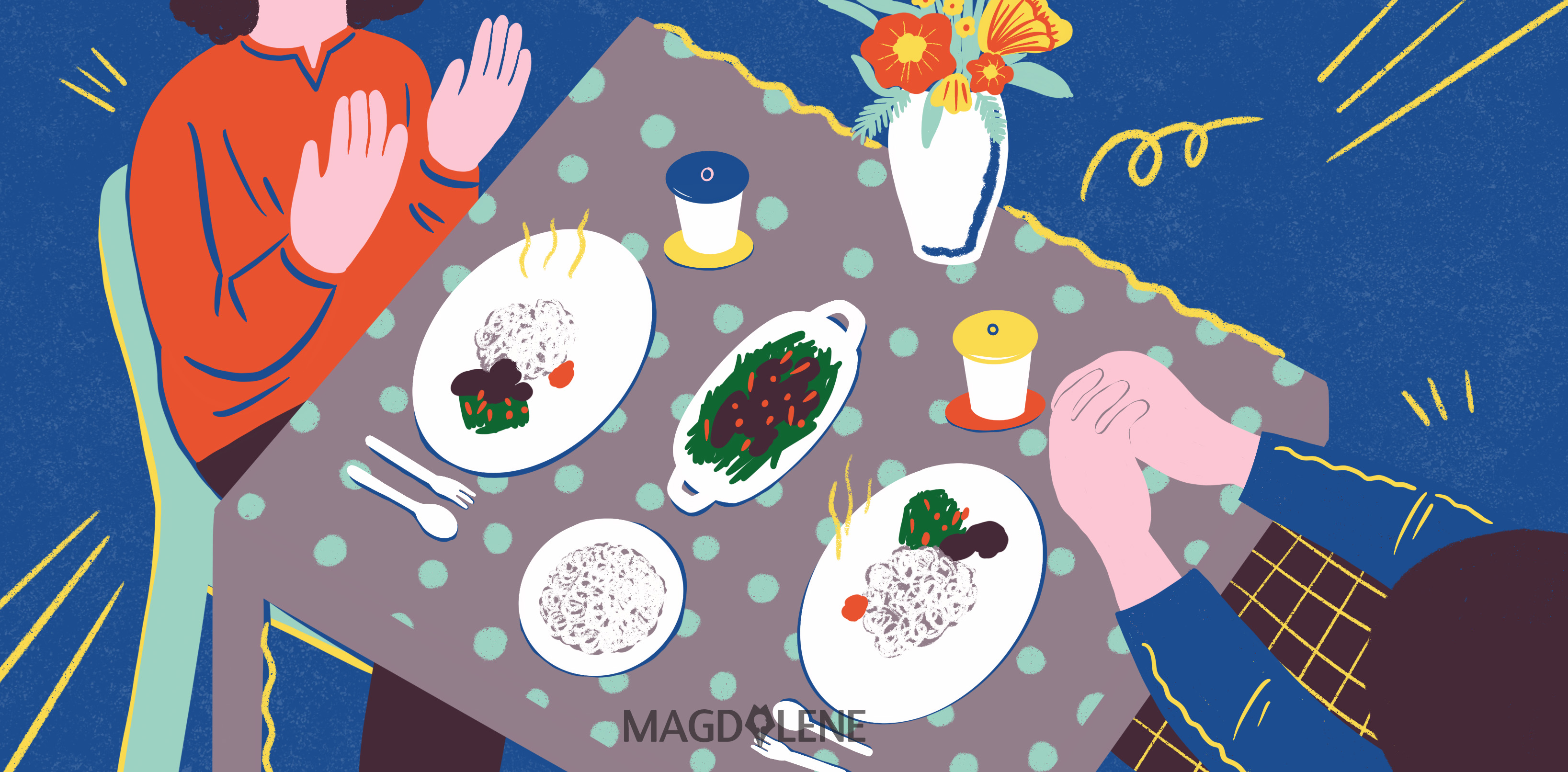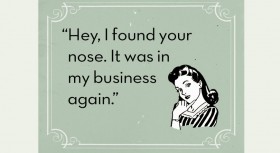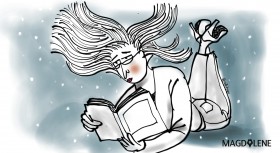From milk, bread, to biscuit, at least 30 snacks were stored inside my room in the last fasting month. Yes, I consumed them all. Secretly and quickly, when my parents, who faithfully practice the ritual, are not watching.
Where did I get those snacks, you asked? I bought them at the nearest warungs or minimarket twice a week (don’t worry, I wore a mask and practice physical distancing). I also bought some biscuits that are my parents’ favorites. When I returned home, I put my parents' snacks on the dinner table and stored half of my snacks there too – making sure they saw me doing it. When they were not around, I secretly transferred another half of my groceries to my working desk in my room, where I consumed them from day to day.
I believe there are many others who do the same. I have witnessed people having lunch half-openly during Ramadan for years. Not all Muslims (or Muslim-born people) actually control their hunger from dawn to dusk for various reasons. In my case, I might not be religious enough to fast for 30 days straight. But I would still be decent enough to join my family for suhoor (pre-dawn meal) every 4 AM. And when it’s maghrib (dusk) time, I will make sure that I look a bit hungry before joining my small family to break the fast with a sweet or savory takjil (snacks) every day.
Also read: After Years Snubbing My Religion, I’ve Finally Made Peace with It
For years, when I lived separately from my family, it was easier for me to have a meal or sip a mug of coffee in the afternoon. All I had to do was prepare my food beforehand and bring it to work. I was very fortunate to work in places that were very accepting, where people didn’t mind my personal choice. Of course, I was courteous enough to not show food in front of anyone. No one was ever offended, no one felt they needed to preach me or questioned my choice.
Two years ago I left Jakarta to live with my parents again. But during last year’s Ramadhan, I intentionally visited the capital for a week, where I worked and, of course, celebrated my freedom to eat at the nearest warteg (food stall) in day time. But this year when Covid-19 forced us to stay at home, I needed to develop a different strategy.
I have to admit that many times I felt like I was betraying my parents. But I would then ask a deeper question to myself: what is the essence of Ramadan fasting anyway? Is it controlling my desire for things, or just following a tradition that no one dares to challenge? What is the message and is it still relevant? What if we "do" the message without even observing the ritual?
As a child, I was taught to fast during Ramadan to experience what it was like to live like a poor person who could barely have food, much less buy other things. I was also taught to be grateful for what we had and that zakat fitrah (alms giving) was a powerful tool to help the vulnerable. To do this I still pay zakat, even if I no longer fast.
Also read: Beyond the Feast: Life After Ramadan
Over the years, I have observed that many people do not fully comprehend the message of the holy month. Yes, many spend money on charity, but along with it came the excessive consumption of takjil, ngabuburit (hanging out to kill time before fast breaking), fast-breaking gathering, and new clothes for the Eid. We think we deserve all of it to compensate for our 30 days of ‘struggle’.
Have we examined this? Is this a religious teaching or a commodification of it? What if it isn’t Ramadan that we have been really practicing, but consumerism? What if we have never really controlled our desire and, instead, just paused it? After Eid, we will continue our “normal” life. We will forget to take care of the poor. We almost never send money to charity or social movements again to empower the vulnerable. We will indulge ourselves in all the things that our privilege lives entitled us to.
The question now is if our sense of solidarity with the marginalized and the awareness of the struggle of the less fortunate will disappear again after Eid, is fasting during Ramadan still relevant?
I consider myself a Muslim even today. I believe in the Oneness of Allah and that Mohamad is His messenger. I don’t know if I will ever again observe Ramadan fasting in the upcoming years. What I know is that if I do fast, I want to do it because I want to be a better person. I want to fast to be more aware of wealth distribution, instead of just blindly following tradition.
Illustration by Karina Tungari







Comments